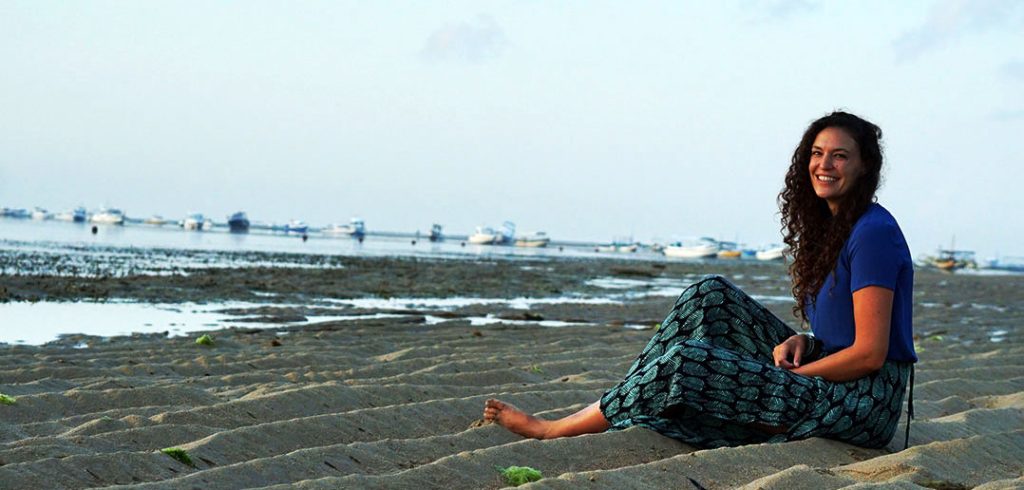“The laws exist,” said Giselle Schmitz, GSAS ’22, “but the economics really drive these races for resources.”
The conservation-minded researcher arrived in Bali, Indonesia, in August to work with the Coral Triangle Center, a nonprofit that connects governments, corporations, and local groups to help strengthen marine resource management in the region. Two big questions drive her work, she said: “How can a community be supported in the management of their own resources, and how can we reduce the outside stressors on those resources coming from countries that may have an exploitative interest?”
Schmitz was placed at the Coral Triangle Center after earning a Luce Scholarship, a prestigious award that gives early-career leaders an immersive professional experience in Asia. It marked the second fellowship she’s earned since graduating from Fordham’s international political economy and development (IPED) master’s degree program in 2022.
Finding a ‘Perfect Fit’ at Fordham
A California native and longtime scuba diver, Schmitz said protecting the oceans has always been a key part of her career goals. After majoring in English and minoring in biology at Walla Walla University in Washington, she earned a law degree at the University of Oregon, where she studied with Professor Richard Hildreth, who had been instrumental in passing several key environmental protections in the U.S.
After law school, she joined the Peace Corps to gain the kind of global experience she felt would be essential to environmental work, especially as rising sea levels and other effects of climate change permeate international borders. She was teaching at Gansu University of Political Science and Law in Lanzhou, China, in February 2020 when the COVID-19 outbreak cut short her time there.
That’s when Schmitz discovered the Fordham graduate program. She had been looking for a way to continue her global education in the U.S., and the IPED program was a “perfect fit,” she said, not only because it participates in the Paul D. Coverdell Fellows program, which provides financial assistant to returning Peace Corps volunteers, but also because it equips students—with classes like Econometrics and Development Economics—to work on complex issues in the face of competing interests.
Global Fellowships and Local Action
Schmitz said another highlight of her Fordham experience was working with the Office of Prestigious Fellowships, which helps students and alumni apply for funding and scholarships like the Fulbright and Truman. These prestigious fellowships allow them to pursue research and find innovative solutions to complex societal challenges, from marine resource management to subway accessibility.
With the support of the prestigious fellowships office—plus IPED program director Henry Schwalbenberg, Ph.D., and program manager Donna Odra—Schmitz applied for and earned a John A. Knauss Marine Policy Fellowship in 2022, the year she completed the Fordham program. She worked in the Office of Science and Technology at the National Oceanic and Atmospheric Administration (NOAA), part of the U.S. Department of Commerce. For a year, she studied how community-based research can help the government manage fisheries “in a way that makes sense for the ecosystem, including the [people] that depend on it.”
And while her research has brought her across the world to promote sustainable development, Schmitz believes that we can all find inspiration and take action closer to home.
“Finding those pieces to continue to be inspired by is so important, because otherwise, climate looks like a monumental challenge,” Schmitz said. “I think keeping hope active comes from those small actions, those tangible steps you can take.”


